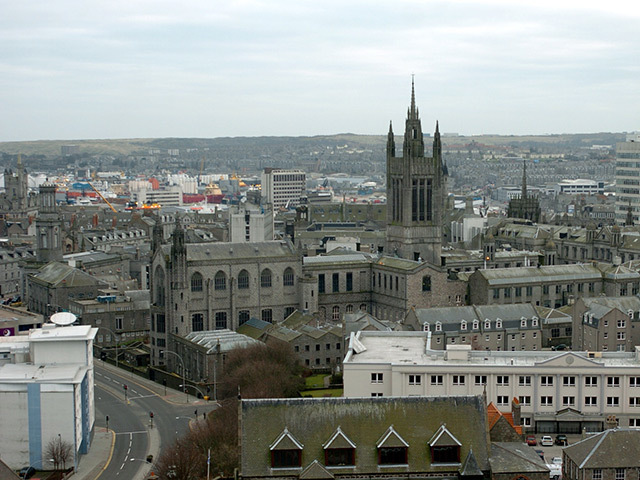
A new City Deal for Aberdeen could help the city off the rollercoaster economy created by North Sea oil’s boom and bust nature.
That’s the view of two of the city’s top property lawyers who believe cooperation between the public and private sector can galvanise the city currently reeling from the oil price slump.
The City Deal is seen as a means of balancing the economics of Aberdeen and north east. Both local authorities in Aberdeen and Shire are putting together a final proposal for the £3billion funding package from the government, the Aberdeen City Region Deal.
The oil price – which has more than halved in the past 12 months – has cost thousands of jobs in the city as companies slash costs.
Richard Goodfellow and John Strachan, commercial property partners at city law firm Burness-Paull, said the public and private sector must work together to help ensure a successful long-term future for Aberdeen and the north east of Scotland.
The pair, spoke after Energy Voice reported the commercial and residential property markets were feeling the pinch as the oil slump drags on.
A flurry of new commercial, grade A office developments – built in response to a chronic shortage of space in Aberdeen prior to the oil crash – has led to an unprecedented 1.7million sq ft of real estate available to rent in the Aberdeen area. Demand for rental and sales of city homes is also slowing down in certain sectors.
Both lawyers said they remain upbeat about the city’s long-term prospects.
Goodfellow said: “Negative sentiment tends to make good headlines, but the minute we start to feel negative about the market it has a direct impact on the value of property.
“The moment you see an impact on residential properties, it has an immediate, direct impact on buying land. There’s no doubt people are feeling the pain. We’re in a trough at the moment but we have been through these cycles before.”
“I think we need to get off the roller-coaster ride we have in the oil and gas industry, where companies pay people off and then hire them back as soon as the oil price spikes back up again. I do think this time there is a realisation this needs to change.
“Following the property crash in 2008, it was those who were quite heavily geared and were riding the crest of the wave that crashed and burned. The people still prospering were the ones who took a more cautious and longer-term approach.”
Strachan added: “The infrastructure projects being planned, such as the AWPR, the City Deal proposal – are they too late? On the contrary, I would say it’s essential they are delivered now in order to ensure the city can establish and maintain itself as an international centre of excellence. We need the connectivity and infrastructure that ensures we can continue to retain and attract people to this city.”
“It’s essential the City Deal is delivered. We need the private sector to get behind it as well.”
Goodfellow explained that the property market takes time to respond to ups and downs in the oil business.
“The oil industry is dynamic and changes quickly. People were clamouring for space two years ago and there was a scramble to get new buildings out of the ground, but that takes a couple of years to happen. In the meantime, the oil price has crashed. I think it appears worse because of how overheated the market had become.”
Strachan said: “The redressing in supply and demand in the office market in not necessarily all bad. It looks dramatic due to the swing from a very constrained supply 18 months ago to the point now where there is a vast amount of space available in the city. It is a more ‘normal’ city market now. Aberdeen was not normal before.”
Major projects, such as the AWPR, the Marischal Square development and the proposed new Aberdeen Exhibition and Conference Centre, are projects that Strachan believes are vital.
He explained: “These projects will help breathe new life into the city. The more people live and work in town, the greater the requirement for residential and retail space. It creates a level of activity in the city that could be transformational.”
He added: “There’s a sense of planning for when North Sea oil eventually tails off. The challenge is to ensure that Aberdeen continues to operate as international base and serve the energy industry further afield.
“We have to be very careful about spreading too much doom and gloom and thinking the oil industry is coming to some kind of premature end. It’s in a trough, and it’s a deep one, but there will be a recovery.”
Goodfellow added: “If the city has good infrastructure and transport links, and its affordable for people to live here, why should businesses look to leave?”
“We need infrastructure and a platform to build on. We’ve had under-investment for decades, but if it’s coming now, we must take advantage and use the opportunities that are presented.”
Recommended for you


